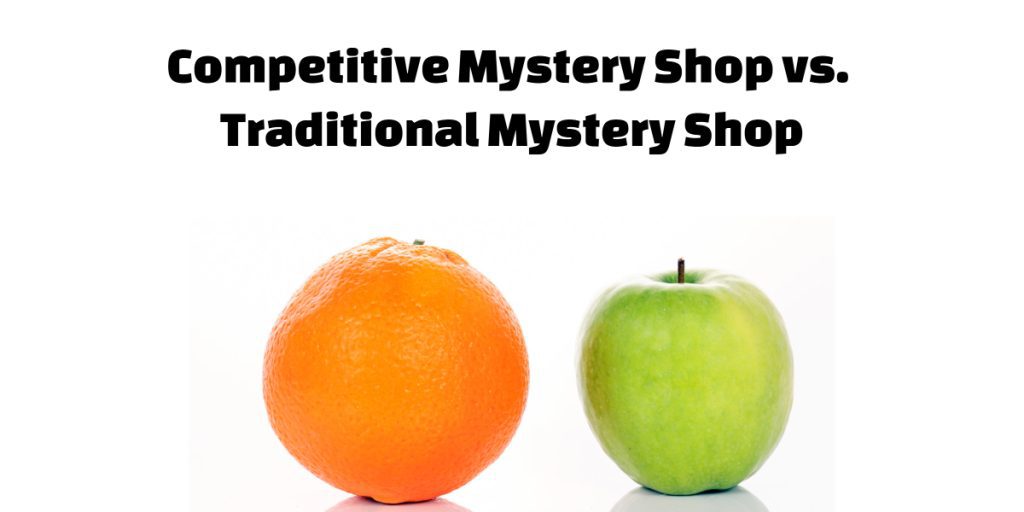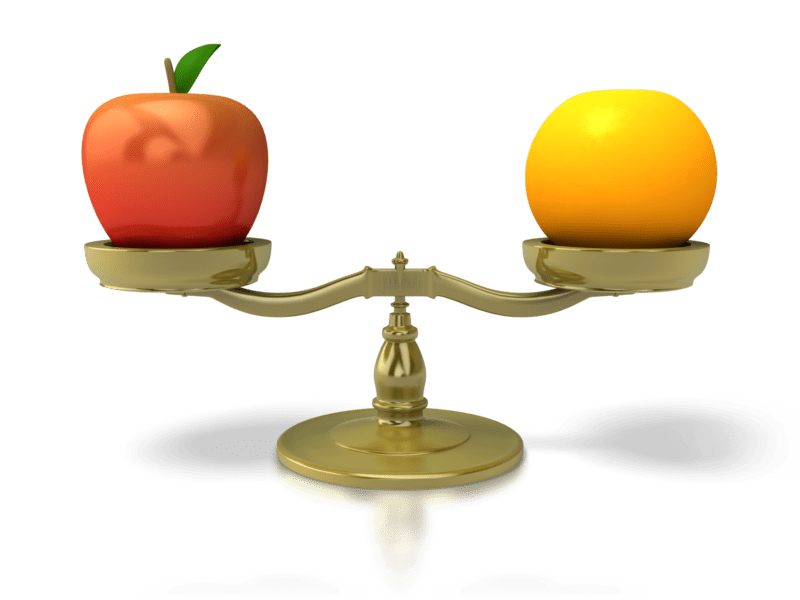

Comparing a competitor mystery shop to a traditional mystery shop is like comparing apples to oranges. Although they may seem similar at a glance, the two are actually vastly different. The approaches for a competitor mystery shop versus a traditional mystery shop differ significantly in goal, shopper selection, sample size and analysis.
Goal
Competitor mystery shop: The goal of a competitor mystery shop is to gather insights on competitor initiatives and best practices (e.g. telecom wants to see what other incentives competitors are offering smartphone buyers besides those listed on their websites).
Traditional mystery shop: The goal for a traditional mystery shop is to assess staff service and compliance performance (e.g. same telecom wants to see if all their outlets have posted signage promoting their new bundle packages).
Shopper Selection
Competitor mystery shop: Fastidious attention is placed on recruiting shoppers to ensure they are an exact fit of the actual customer profile. For example, pharma shoppers might need to be oncology nurses in order to provide feedback on the messaging given to them by competitor medical sales representatives.
Traditional mystery shop: Shoppers typically include students, housewives and retirees and used by the shopping firm for different versus being hand-picked (e.g. LCBO uses mystery shop firm to shop all their outlets to see how compliant store staff are in refusing to sell alcohol to people either under 25 or who are intoxicated.)
Sample Size
Competitor mystery shop: A sample size for a competitor mystery shop will usually include up to 100 shops (e.g. bank shops 20 competitor commercial account managers to learn what new pricing, products and messaging they have in place).
Traditional mystery shop: A sample size for a traditional mystery shop is much larger. The plan might be to have shops in most, if not all, outlets which for a major retailer can be over 1000 stores.
Analysis
Competitor mystery shop: open-ended, blend mystery shop with in-depth interviews, internet scan, include SWOT, recommendations, lots of analysis and interpretation.
Traditional mystery shop: follow a set template, shoppers download surveys onto the mystery shopping firm’s website, lots of charts, tables and scores, comparing current performance to historical performance.
Competitor Mystery Shop vs. Traditional Mystery Shop Lesson
Figure out the type of shop you need and make sure the supplier’s approach, resources and experience fit these needs. Don’t hire a CI shopping firm to do a national multi-chain shop or a retail shopping firm to do a deep dive competitor shop.
